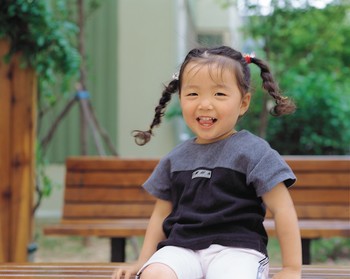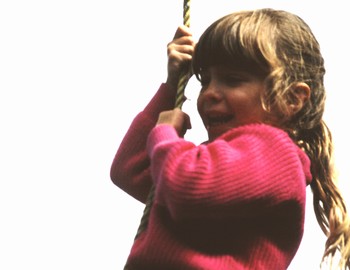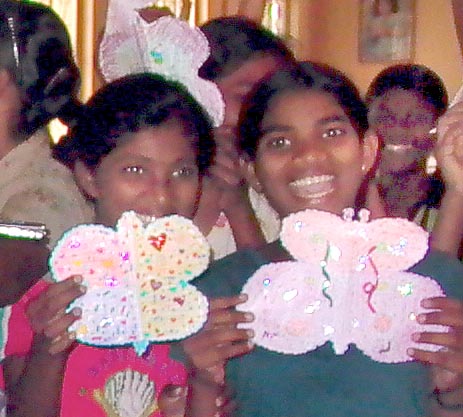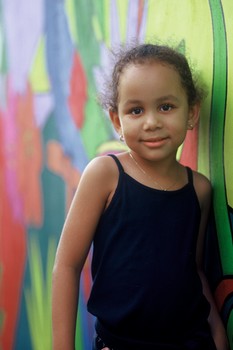

|
| "Play,
like love, happiness, and other psychological constructs, is easier
to recognize than to define". Charles Schaefer |
|
International
Handbook of Play Therapy:
|
|
In the past twenty-five years, the practice of play therapy has
increased exponentially in America and throughout the world. This
handbook brings together an international group of scholars and therapists
to address a wide variety of topics relevant to the rapidly expanding
field of play therapy. The primary goal of the handbook is to provide
play therapists with practical information they can put into immediate
use in their clinical work with children and adolescents. Thus the
focus is on advances in assessment, theory, research, and practice
that have universal appeal, rather than on adaptations of play therapy
to specific cultures. Play therapists and students from diverse cultures,
professional disciplines, and theoretical orientations will find
this book to be a comprehensive resource for keeping abreast of innovations
in the field. Please join us in this 9 unit course. |
| This course consists of a post-test based upon reading the text. There is no online material to read. After you pass the post-test, you may print out your own certificate. |


This course meets the qualifications for 9 hours of continuing education
maintains responsibility for the program. |
|

|
Learning Objectives In this 9 unit course:
|

"The
rules for parents are but three... love, limit, and let them
be." - Elaine M. Ward |
|

Table of Contents
International Handbook of Play Therapy:
Advances in Assessment, Theory, Research and Practiceo Family Play Therapy
Schlomo Ariel
o Narrative Play Therapy: A Collaborative Approach
Ann Cattanach
o Theraplay for Children with Self-Regulation Problems
Susan Bundy-Myrow
o Embodiment-Projection-Role: A Developmental Model for the Play Therapy Method
Sue Jennings
o Barriers, Bridges, Breakthroughs: Play-Work with Autistic Spectrum Children
Shoshana Levin
o The Use of Play and Narrative Story Stems in Assessing the Mental Health Needs of Foster Children
Sheila Hudd
o Transcending into Fantastic Reality: Story Making with Adolescents in Crisis
Mooli Lahad
o Assessment of Sibling Relationships Using Play, Art, and Stories
Kate Kirk
o The Erica Method of Sand Tray Assessment
Jytte Mielcke
o Children Talk About Play Therapy
Jo Carroll
o Building an Empirical Foundation for the Use of Pretend Play in Therapy
Sandra Russ
o "Little Monsters"? Play Therapy for Children with Sexually Problematic Behaviors
David LeVay
o Creative Interventions to Engage Resistant Children in Therapy
Liana Lowenstein
o Play Therapy for the Disruptive Behavior Disorders
David Hudak
o The National Story and the Child's Drama in Play Therapy in Isreal
Galila Oren



Charles Schaefer, Ph. D., is considered by many to be the "Father of Play Therapy". He is Professor of Psychology at Fairleigh Dickinson University in Teaneck, New Jersey. An expert in the field of play therapy, he is the cofounder of the Association for Play Therapy and the founder and co-director of the Play Therapy Training Institute in New Jersey. Dr. Schaefer was presented with the Distinguished Service Award-International Association for Play Therapy in 1996, and the Distinguished Faculty Award For Research & Scholarship, Fairleigh Dickinson University in 1994. The International
Handbook of Play Therapy: Advances in Assessment,
Theory, Research and Practice joins
Dr. Schaefer's legendary list of publications on child therapy and play
therapy, and include such classics as:
Judy McCormick, ME.d., is a registered play therapist-supervisor who is currently working as a play therapist for the Mid-Western Health Board in Limerick, Ireland. She is involved in the supervision and training of play therapists and others interested in play therapy. She is the former secretary of Play Therapy Ireland. Presently, she is involved in research using play therapy in an early intervention program and using Filial Therapy with an Irish population. Akiko J. Ohnogi, Psy.D. is a clinical psychologist in private practice in Tokyo, Japan. She lectures on the topics of play therapy, child psychotherapy, parenting, multiculturalism, and child development at hospitals, residential treatment centers, universities, and schools throughout Japan. She is a school counselor at the Nishimachi International School in Tokyo, Japan. |
![]()
International Handbook of Play Therapy
The Therapeutic Powers of Play
888-777-3773
We do adhere to the American Psychological Association's Ethical Principles of Psychologists. Our courses are carefully screened by the Planning Committee to adhere to APA standards. We also require authors who compose Internet courses specifically for us follow APA ethical standards. Many of our courses contain case material, and may use the methods of qualitative research and analysis, in-depth interviews and ethnographic studies. The psychotherapeutic techniques depicted may include play therapy, sandplay therapy, dream analysis, drawing analysis, client and therapist self-report, etc. The materials presented may be considered non-traditional and may be controversial, and may not have widespread endorsement within the profession. www.psychceu.com maintains responsibility for the program and its content. |
|
|
 |